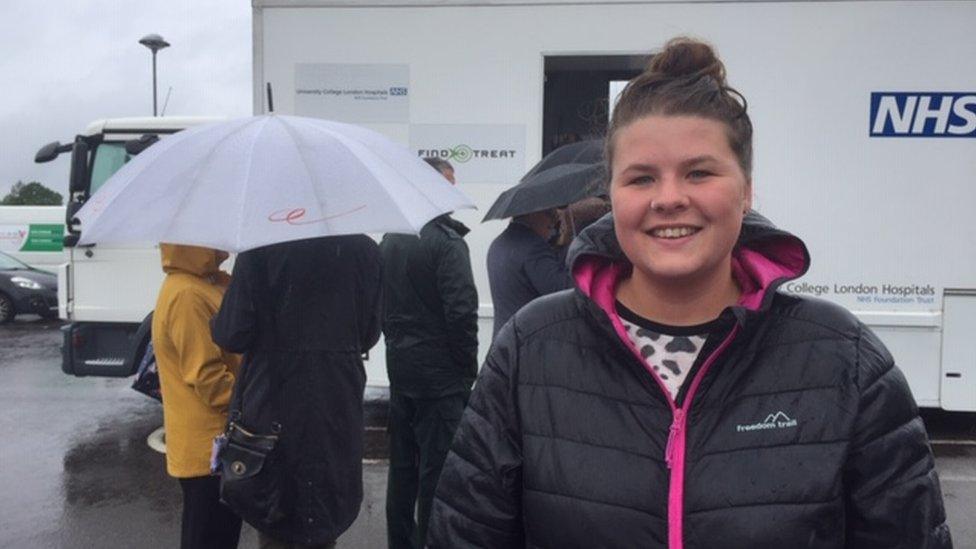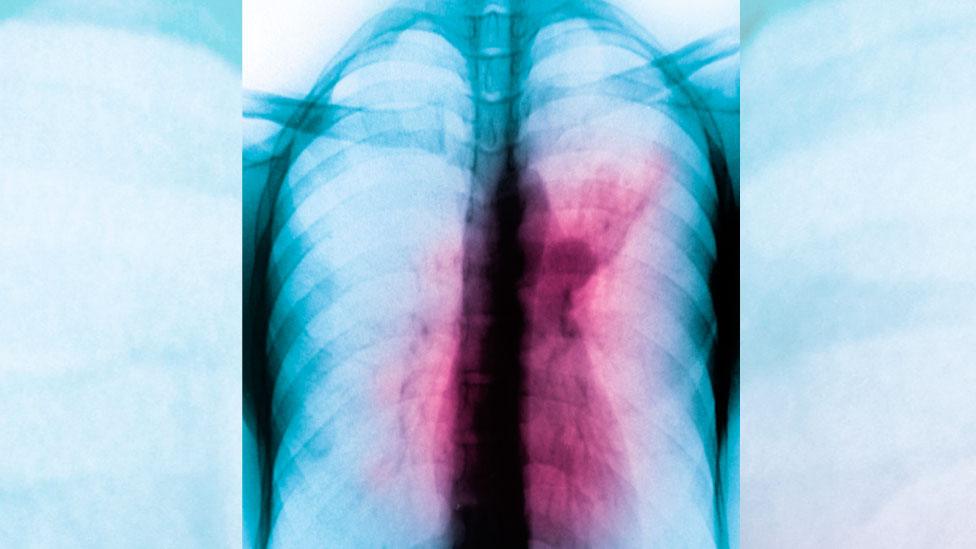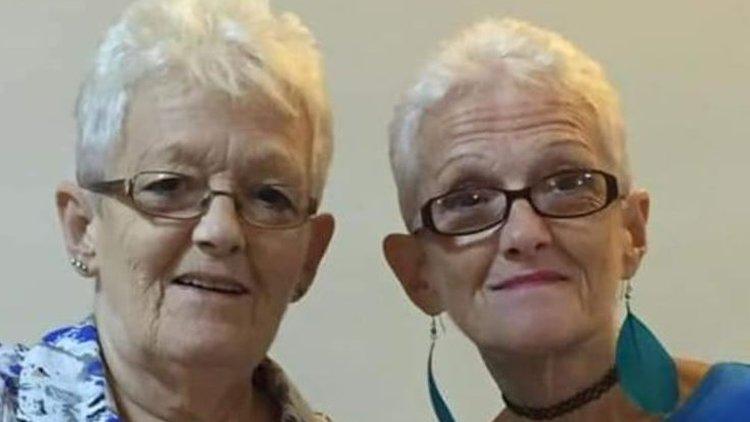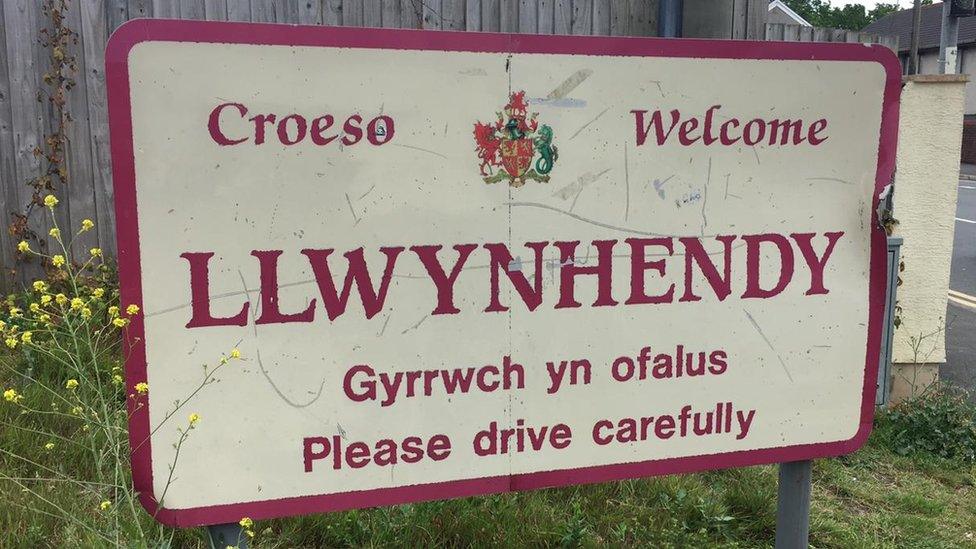Llwynhendy TB outbreak: Hundreds queue for screening
- Published
"We thought it is best to get tested to avoid any further concern"
Hundreds of people have been queuing for tuberculosis screenings following an outbreak of the disease in Carmarthenshire.
People who may have been exposed to TB are being asked to take part in the two-day programme.
The outbreak has killed one woman, with 29 cases of TB linked to the infections in the Llanelli area.
Margaret Pegler, 64, from Llwynhendy, died just five days after being told she had the disease in September.
The community screenings, the first to be carried out by Public Health Wales, have begun at a pub linked to the outbreak, a health centre and Parc y Scarlets in Llanelli, external.
Organisers said they saw more than 100 people in the first hour, with more than 350 people in total over the course of the day.
There will be more sessions on Wednesday, while an extra one has now been arranged for Thursday, where people can be screened at Llwynhendy Health Centre.

Around 100 people were queuing for TB screening at Parc y Scarlets before 08:00 BST today
Shaun Greaney, who lives in Llwynhendy, said he was "concerned" the community didn't know about the outbreak sooner.
"It shouldn't have been left to get to this stage where so many people have had to turn up to get checked out and it has caused alarm in the community
"Why has it taken so long for them to tell us?"
Vikki Rees, who used to work in a pub in Llwynhendy, said she wanted to get a TB screening for "peace of mind".
"We thought it is best to get tested to avoid any further concern," she added.
"They have put the right things in place now to prevent future spreading of TB."

Shaun Greaney said: "It shouldn't have been left to get to this stage"
People eligible for screening are:
Those who received a letter inviting them to attend
Adult customers and employees of the Joiners Arms between 2005 and 2018 who have not previously been identified as a contact of someone infected with TB
Adults who have been in the same room for more than eight hours as someone with TB, within four months before the person with TB was diagnosed and treated
Public Health Wales said anyone unsure whether they need to be tested should attend a screening session, external and discuss their circumstances with medical staff.

Ms Rees wanted to get tested for "peace of mind"
Dr Brendon Mason from PHW said: "TB has been circulating at a low level in Llwynhendy for some time and our aim is to ensure that all affected individuals proceed to treatment as soon as possible so that we can halt any further spread of the disease and bring the outbreak under control."
About 80 people have been identified as contacts with confirmed TB cases and have been sent letters asking them to attend Tuesday and Wednesday's screening sessions.
PHW is working with Hywel Dda University Health Board to offer the sessions, which have a capacity for 700 people over the two days.
They want to identify anyone who has been exposed to TB and anyone who has active signs of the disease in order for them to be treated.
An additional call is being issued to people who may have been exposed to TB as an adult customer or employee of the Joiners Arms in Llwynhendy between 2005 and 2018.
The pub's owners SA Brain said it was "inevitable that several of those affected will have used the pub and mixed with others there".
Investigations into TB infections have been going on since 2010, with the hope this screening programme can finally halt them.


In Wales, there are about 100 cases a year of tuberculosis
What is TB?
An infection usually found in the lungs, but any part of the body can be affected
Contagious and caught by breathing in bacteria in tiny droplets sneezed or coughed out by someone with TB in their lungs
The most common symptom is a persistent cough for three weeks or more
Treatment usually involves taking antibiotics for several months
While it is a serious condition that can be fatal if left untreated, deaths are rare if treatment is completed
Source: NHS Choices, external
- Published31 May 2019

- Published30 May 2019
